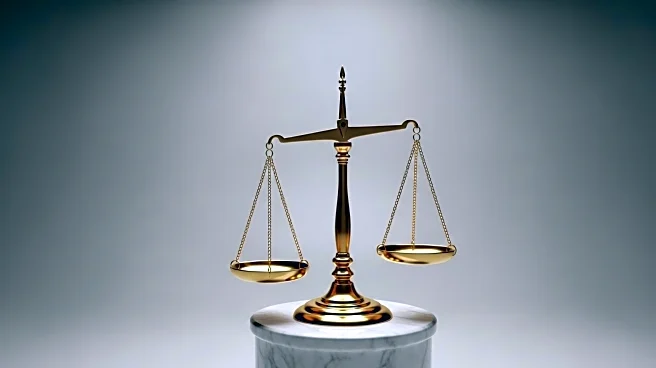What's Happening?
Treasury Secretary Scott Bessent has called for the Federal Reserve to be relieved of its duties regulating the nation's banks. In an essay published in the Wall Street Journal, Bessent argues that the central bank has deviated from its core mission of promoting full employment, stable prices, and moderate long-term interest rates. He contends that the Fed's involvement in banking regulation creates a conflict that jeopardizes its independence and accountability. Bessent suggests an independent, nonpartisan review of the Fed's entire institution, including its monetary policy, regulation, communications, staffing, and research. Historically, the Fed's role in bank supervision and regulation has expanded over time, particularly during crises like the Great Depression and Great Recession. Currently, bank supervision and regulation are shared among the Fed, the Federal Deposit Insurance Corporation, and the Office of the Comptroller of the Currency.
Why It's Important?
The proposal to remove the Federal Reserve's banking regulation powers could significantly impact the U.S. financial system. Advocates for the Fed argue that its oversight is crucial for maintaining financial stability, which is integral to its mission. If the Fed's regulatory powers are diminished, it could lead to changes in how banks are supervised, potentially affecting their operations and profitability. This shift might also alter the balance of power among regulatory agencies, impacting how financial policies are implemented. Stakeholders such as banks, policymakers, and financial institutions will need to assess the implications of such a change, as it could influence the regulatory landscape and the stability of the banking system.
What's Next?
The next steps involve determining who would conduct the proposed review of the Federal Reserve and what it would entail. Bessent has encouraged Fed Chair Jerome Powell to initiate an internal review before any external evaluation. Powell has acknowledged that changes to the Fed's functions or structure are ultimately up to Congress. Discussions and debates among lawmakers, financial experts, and industry leaders are likely to follow, as they consider the potential consequences of altering the Fed's regulatory role. The outcome of these deliberations could lead to legislative actions or policy adjustments affecting the Fed's responsibilities.










